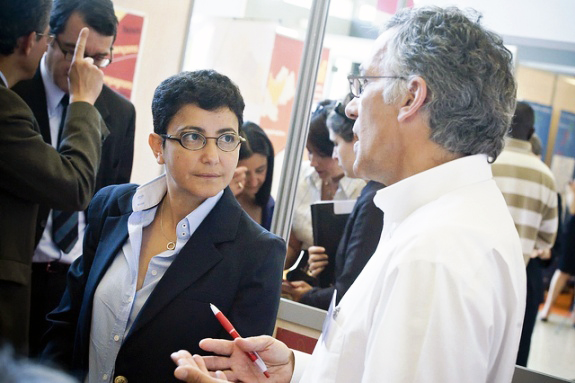By KIRSTEN SCHLENGER, MANAGING PARTNER AT WEAVER SCHLENGER MAZEL LLP.
The business community has long heralded the vital role immigrant-owned startups play in creating American jobs. This month, it seems like someone at U.S. Citizenship and Immigration Services (USCIS) was listening. USCIS recently hosted its first in a series of summits dedicated to gathering expertise on how U.S. immigration law can enable foreign innovators to come to or remain in the U.S. lawfully while they start and grow businesses that benefit the U.S. economy. The informational summits, part of USCIS’s new Entrepreneurs in Residence (EIR) initiative, will result in the creation of a team of entrepreneurs and experts who are charged with designing and implementing USCIS policy that eases a path to the U.S. for talented immigrant entrepreneurs.
Attended by 150 high-level entrepreneurs, business experts, immigration attorneys and government officials (including White House staff) in Silicon Valley, the EIR summit provided participants with an opportunity to give feedback to USCIS on the problems many fledgling businesses and foreign-born entrepreneurs face today. In contrast to many other government-hosted events, however, USCIS seemed genuinely eager to hear and learn from attendees.
“Today USCIS gained invaluable insights from prominent entrepreneurs and industry leaders on immigration issues critical to our nation’s economic prosperity,” said Director Alejandro Mayorkas. “The introduction of expert views from the private and public sectors will help us ensure that our policies and processes fully realize the immigration laws’ potential to grow our economy and create American jobs.”
USCIS hopes to create an “Entrepreneurs in Residence” tactical team following this and other informational summits. The EIR team, who will serve for a 90-day period, is tasked with informing USCIS about the startup landscape—how are startups born or incubated, what they look like, how they function, what types of evidence might be realistically needed to prove eligibility for visa status.
The creation of the EIR program reflects a genuine interest on the part of USCIS to try new approaches and to recognize the 21st century challenges immigrant entrepreneurs face. Most business experts at the summit agreed that legislation is the key solution to those challenges. But in the absence of statutory changes, experts suggested that the Administration make more of its executive branch functions to spur economic growth and create jobs.
And the expertise sharing and creative thinking at the summit were certainly encouraging. However, it remains difficult to predict how effective a team of Entrepreneurs in Residence working for 90 days will be. Can they shake up longstanding custom at USCIS? Can they transmit their energy, enthusiasm, know-how and ideas to the front line immigration examiners in a truly effective way?
As with most new ideas at USCIS, it may take a while to bear fruit, but the originality of the EIR initiative has the chance to translate into more thoughtful and creative approaches to adjudicating cases and encouraging foreign born entrepreneurs to start their new businesses in the United States.
Photo by UGBC Park.
FILED UNDER: Entrepreneurship, Executive Branch, foreign innovators, undocumented immigration, USCIS



